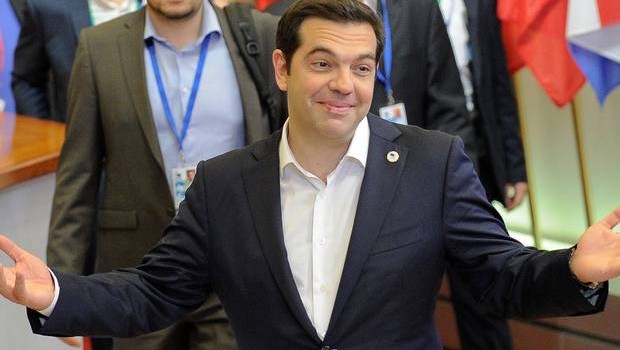
To the bitter end
Economy 14 July 2015After overnight talks, Athens and its creditors reached a deal, that will shore up Greece in the Eurozone. Early this morning, the President of the European Council, Donald Tusk, stated that the 19 Eurozone governments have agreed in principle to start negotiations for an ESM programme.
“There will be no Grexit in form and substance”, said Jean- Claude Juncker, the European Commission President; nevertheless, the risk of Grexit has not gone away at all, as the deal will require ratification in several national parliaments.
The compromise that Tsipras offered last week to his creditors was just the beginning of the new draconian deal. Indeed, threatening by the German proposal for a temporary Grexit, Tsipras has been forced to agree on tough economic reforms, in order to obtain new funds and to avoid bankruptcy.
Under the new agreement, Greece must enact further pension reforms, open up professions, loosen trading rules, privatise its electricity network, reform its labour market and strengthen its banks. In addition, the Greek government must accept complete oversight from the troika and it will have to deposit the “valuable greek assets” in a privatisation fund in order to raise €50 billion to recapitalise Greek banks.
Nevertheless, given the mistrust between Athens and its Eurozone partners after two failed bailouts worth about €240 billion, the Eurozone leaders wanted to be sure that Greece will implement its promised reforms. For this reason, during the Summit talks, the Eurogroup stressed that policy commitments should be followed by a successful implementation, which can restore trust in Greek authorities as a prerequisite for a possible future agreement on a new ESM programme.
Thus, Greek government was asked to immediately pass laws to further reform the tax and pension system, liberalise the labour market and sign up to plans that ensure immediate spending cuts in the event that Greece misses primary surplus targets. The reform plan must now be approved by the Athens Parliament by Wednesday, and then voted by Eurozone’s national parliaments. If an agreement is reached, talks can then begin towards a new three-year bailout worth about €86billion, accompanied by further monitoring by Greece’s creditors.
This agreement seems to mark the climbdown of the Greek Prime Minister, who appears to finally capitulate in the face of threats that Greece would be ejected from the Eurozone. After that Summit, Alexis Tsipras admitted that it was a “tough battle”, but Greece had secured debt restructuring and a “growth package”. Nevertheless, the deal will probably create a political turmoil in Athens, with relevant political implications for Tsipras. Indeed, many in the Prime Minister’s party, which have already refused to authorise the government to restart bailout negotiations in return of austerity measures, are denouncing the humiliating capitulation forced mainly by Germany. Thus, in case Tsipras could not count on his majority to implement the promised reforms, he will be forced to rely on opposition support and he will probably have to form a new government of national unity.
But, even if Greece will implement reforms, Eurozone national parliaments need to approve the plan before starting ESM talks. Thus, the crisis is far from over. Indeed, while some governments such as France and Italy, championed a united Eurozone, central and northern states showed their opposition to pass bailout agreement for Greece. In this context, Tsipras should hope that the other Eurozone parliaments that need to approve the bail-out, currently Germany, the Netherlands, Estonia, Finland, Slovakia and Austria, will find a way to overcome months of tension and distrust between Greece and its creditors.
So far, this chapter of the Greek crisis seems not to be closed yet. Even if there is no doubt that Greece’s departure from the euro is no longer an immediate prospect, potential risks of not concluding negotiations still remain.
For Greece, the way ahead is still paved with obstacles.







